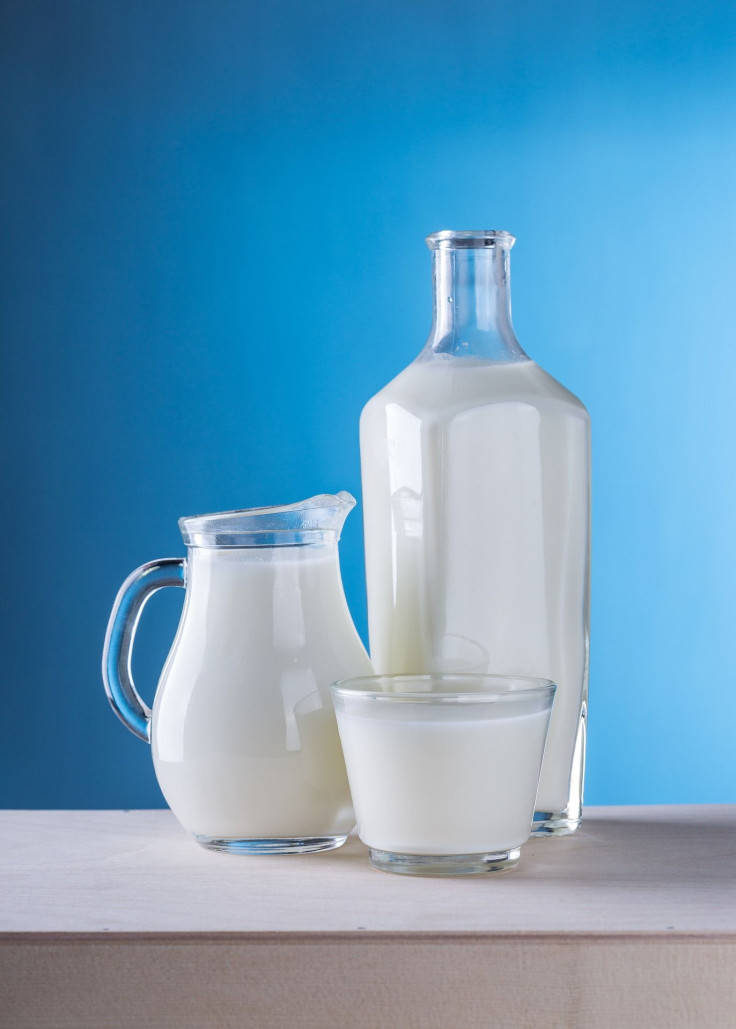A Daily Glass Of Cow's Milk May Make Kids Taller Than Drinking Non-Dairy Substitutes, Study Says

With almond, soy, coconut, hemp, cashew, rice, pea (and who even knows) milk lining store shelves, it’s safe to say the plain old cow’s variety no longer dominates. As NPR reported, the average person drinks only 18 gallons a year, down from 30 gallons in the 1970s. A new study (that's likely to make the dairy industry very happy) indicates the move away from traditional milk could be making our population shorter.
Read: Dairy Isn't Deadly: New Study Says Diets High In Milk Products Don't Cause Heart Disease
Researchers at St. Michael’s Hospital in New Jersey decided to see how drinking non-dairy milk affected children in a study of more than 5,000 kids between 24 and 72 months old. The majority, about 92 percent, drank cow's milk every day while roughly 13 percent consumed another variety.
The team found that for every cup of non-cow’s milk ingested, kids were about 0.4 centimeters shorter than the average child their age. Alternatively, the youth were about 0.2 centimeters taller than average for every cup of typical milk drank. The main takeaway seems to be that the more cow's milk you drink, the taller you’ll become. For example, scientists found that three-year-olds who were given three cups of a milk substitute were about 1.5 centimeters shorter than those who drank the regular stuff. Interestingly, diets combining cow's milk with substitutes did not result in taller children as they were still below average height.
It’s not clear why cow’s milk does a body good, but scientists believe it’s because replacements offer less protein.
“The nutritional content of cow's milk is regulated in the United States and Canada, while the nutritional contents of most non-cow's milks are not," says study co-author Dr. Jonathon Maguire, pediatrician at St. Michael's Hospital, in a story on Medical Xpress. "The lack of regulation means the nutritional content varies widely from one non-cow's milk product to the next, particularly in the amount of protein and fat.”
A cup of cow’s milk contains about eight grams of protein, while the same amount of almond only packs in two. Soy milk fares better at seven grams per cup, but some health professionals advise against including too much in young diets as variety is important, reports Parents. No more than two servings per day is a good guideline to follow.
Most of the kids in the study drank cow’s milk, but the number of children sipping on almond or soy are rising.
Julia Kadison, chief executive officer at MilkPep, a Milk Processor Education Program, tells NPR that it’s the decrease of milk in younger diets taking a toll on the dairy industry.
"What's going on with that decline in the young kids really has a lot to do with their gatekeeper moms,” Kadison tells the news organization. "Now there's so much choice in the marketplace," Kadison explains. "You have all kinds of different waters and sports beverages and energy drinks, so there's just a lot of choice out there. It's a culture of choice."
However, some consumers, and especially those working in the dairy industry, wonder if these faux versions should even be marketed as milk since they do not offer the same nutritional benefits.
Read: Drinking While Pregnant: Baby's Facial Features Changed By Any Amount Of Alcohol, Says New Study
"They are deliberately marketing them as a substitute for cow's milk, and it's very successful: More and more people are using those products," New York University Professor of Nutrition Marion Nestle says in NPR.
The controversy over what’s technically milk has caused many to lobby the Food and Drug Administration for stricter labeling requirements, however for now, that thick, creamy almond beverage can still be called milk.
See Also:
Drinking Diet Sodas While Pregnant Could Cause Children To Be Overweight



























